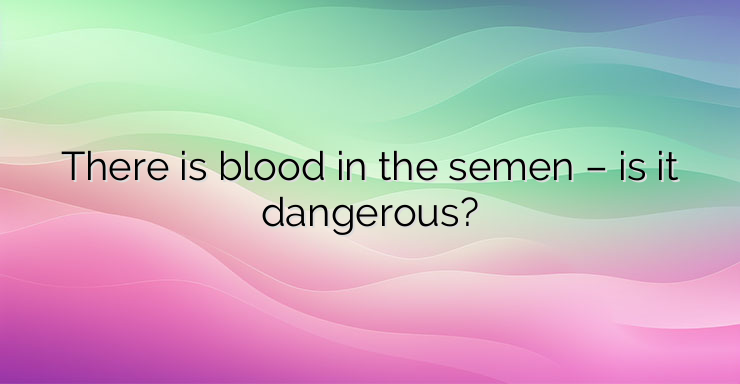Observing a reddish hue in the ejaculate – the secreted seminal fluid – is certainly a cause for concern for many men. In the most common case, however, it is a completely harmless condition known as hematospermia. In more than 70% of cases, it is not clear what causes the presence of blood in the ejaculate, but if this is a one-time manifestation within a few months, it is not a cause for concern. If, however, this concern is too strong, a consultation with a urologist is advised. The specialist can order urine tests, perform an examination of the genitourinary system and check blood pressure. These methods can help determine the cause of bleeding and its severity. One of the common causes of hematospermia is an ongoing infection of the seminal vesicles, urethra, or prostate. They are usually accompanied by additional symptoms, such as burning during urination or painful sensations during ejaculation. If this is the cause, the doctor can prescribe an appropriate course of antibiotics to relieve the infection. Other possibilities are impaired blood function, prostate stones and even hypertension – high blood pressure. Although it is only a theory without available evidence, many urologists are of the opinion that blood pressure that is too high or its sudden jumps can result in splashing of some of the more delicate and microscopic arterioles and capillaries. NEWS_MORE_BOX It is cause for concern when this condition is not an isolated case. If it lasts more than two months or blood in the semen is present every time after ejaculation within several consecutive days, a doctor’s consultation is imperative. This is especially true for men over 40 – hematospermia is one of the rarer signs of prostate cancer. In summary: hematospermia is rarely a signal of disease or dangerous condition, especially in younger men. The presence of blood not in the seminal fluid, but in the urine, however, is a much more serious case – hematuria, consultation with a specialist is again imperative – severe kidney damage may be present.


Leave a Reply